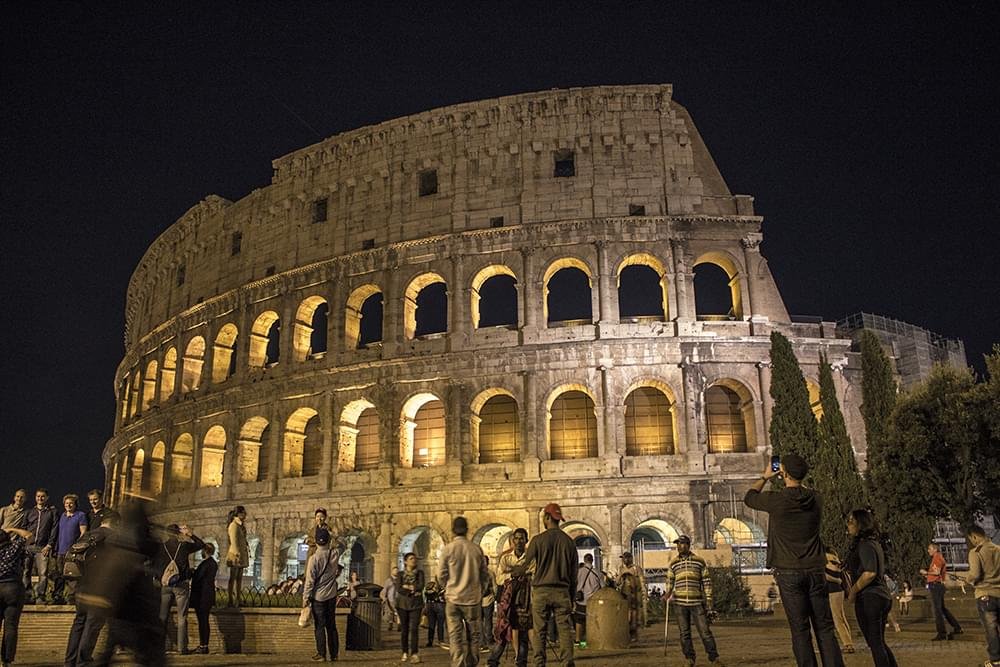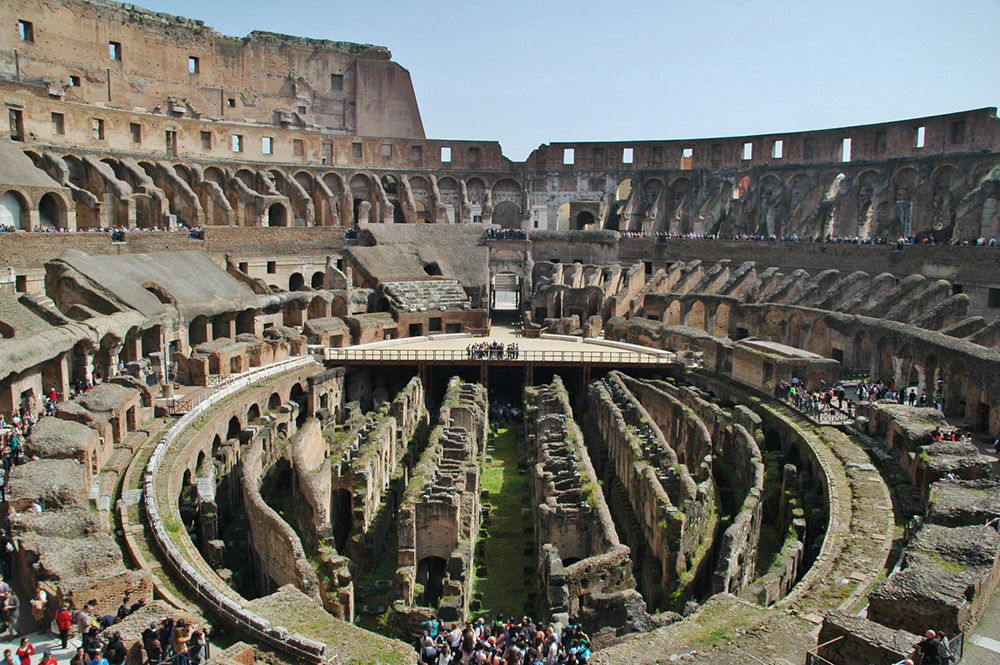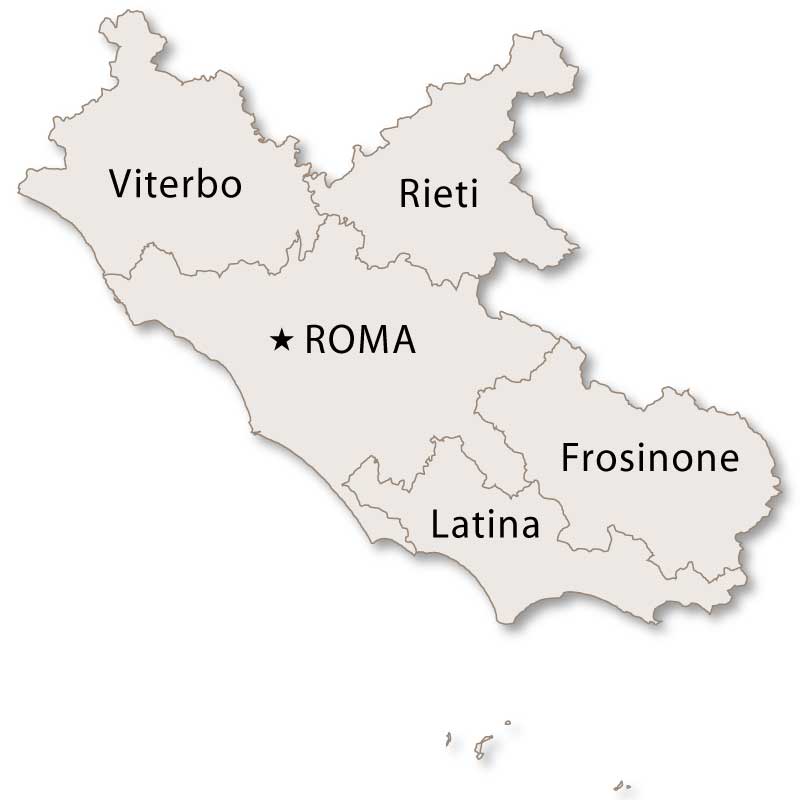
Rome, the eternal city, is home to a myriad of historical wonders that stand as testament to its glorious past. Among these, the Colosseum stands as an iconic symbol of ancient Rome's grandeur and power. Known as the Flavian Amphitheatre, this remarkable structure has fascinated visitors for centuries with its grandeur, architectural marvels, and tumultuous history.
The Colosseum in Rome is one of the most recognised ancient monuments in the world and attracts millions of tourists every year. The largest amphitheatre in the world, it took 10 years to build and is considered to be one of the greatest achievements of Roman architecture and engineering.

The Colosseum is situated in the heart of Rome, Italy, in a district known as the Rione Monti. It was constructed during the reign of the Flavian dynasty, a period that spanned from AD 69 to AD 96. The idea for such a grand amphitheater was conceived by Emperor Vespasian, who sought to enhance the prestige of the Flavian dynasty and provide entertainment for the Roman populace.
Construction was started by the emperor Vespasian in 72 AD. He built the Colosseum as a gift to the people of Rome and paid for it himself with his share of the booty won in the Roman victory at the seige of Jerusalem. To further increase his popularity, he built the Colosseum on land which had previously been seized from the people of Rome by the emperor Nero to create his own, personal estate. However, Vespasian died before the Colosseum was completed, leaving his son, Titus, to finish the job in 80 AD.
The Colosseum's massive scale was a testament to the engineering prowess of the Roman Empire. It could accommodate over 50,000 spectators and was renowned for its sophisticated design, with a series of concentric rings of arches and tiers. The amphitheater was primarily used for various forms of public entertainment, including gladiator contests, animal hunts, mock sea battles, and dramatic performances.
The Colosseum must have been truly spectacular. At the time, it was the largest building in Rome and was 188 metres long by 156 metres wide and 48 metres high. Up to 80,000 spectators could be accommodated entering through 80 arched entrances. The whole structure was clad in marble and there were 160 huge statues decorating the upper levels.
1,000 men were employed to manage a giant awning that was suspended by ropes over the Colosseum to protect the audience from the heat of the sun.
The Colosseum was an enormous entertainment centre where the people of Rome would go to enjoy spectacular shows which would last all day, or sometimes days on end. The entertainment included comedy acts, parades of exotic animals, elaborate dramas and re-enactments based on mythology, history or famous battles. Public executions were held there and of course the famous gladiatorial combats where local heroes would fight to the death. The whole Colosseum could be flooded and ships floated to re-enact famous sea battles.
The inaugural games were held by the emperor Titus in 80 AD. His reign had started badly with Romans having to deal with the eruption of Vesuvius, a large fire in Rome and a plague. Perhaps he hoped to appease the Gods, as well as the Roman people, by staging 100 days of games at the Colosseum, during which time apparently 9,000 animals were killed!
Over the centuries, the Colosseum has been damaged by fires and earthquakes but remains a truly unique and beautiful monument. It was named a World Heritage Site by UNESCO in 1980.
The Colosseum's architectural design is a marvel that has stood the test of time. It is constructed primarily of concrete and sand, a testament to the Romans' exceptional engineering skills.
The outer façade of the Colosseum is adorned with three levels of arches, each with its distinctive architectural style. The lowest level features Doric columns, followed by Ionic columns on the second level, and finally, Corinthian columns on the third level. These columns served as both structural support and aesthetic embellishment, showcasing the Romans' commitment to architectural excellence.
The Colosseum also featured a complex system of tunnels and chambers beneath the arena floor. This subterranean network was used to house gladiators, animals, and machinery, ensuring smooth and dramatic entrances during events. Trapdoors and elevators allowed for astonishing surprises and effects during performances.
The seating arrangement inside the Colosseum was a marvel in itself. The tiers were divided into several sections, with distinct seating for different social classes. The best seats were reserved for the elite, while the common people occupied the upper tiers. Despite the social hierarchy, the Colosseum was a place where people from all walks of life came together to witness spectacular spectacles.
The Colosseum was primarily known for its gladiatorial contests, which were the heart of Roman entertainment during the era. Gladiators, often slaves or prisoners of war, fought to the death or until their opponent submitted. These brutal and bloody battles were cheered on by the enthusiastic crowds, and the victors gained both fame and fortune. The Colosseum also hosted animal hunts (venationes) where exotic and ferocious beasts from across the Roman Empire were pitted against each other or against human challengers.

Another spectacle that took place in the Colosseum was the naumachia, or mock sea battles. The arena would be flooded to recreate naval warfare with scale model ships and combatants. These events demonstrated the immense engineering capabilities of the time, but they were also a gruesome display of violence.
Apart from these more brutal forms of entertainment, the Colosseum was occasionally used for dramatic performances and reenactments of famous battles. These events provided a more cultural aspect to the arena's offerings and showed its versatility as a venue for various forms of entertainment.
As the Roman Empire declined, so did the Colosseum's popularity as an entertainment venue. It saw less frequent use and gradually fell into a state of disrepair. Natural disasters, including earthquakes, further damaged the structure.
During the Middle Ages, the Colosseum was repurposed for various uses, including as a fortress, a quarry, and housing. Its stones were plundered to build other structures in Rome. However, despite its decline, the Colosseum remained a symbol of Rome's ancient glory.
The preservation and restoration efforts of the Colosseum began in the 18th century and have continued to this day. Popes, emperors, and conservationists have all played a role in preserving this iconic landmark. In recent years, extensive restoration projects have been undertaken to ensure the Colosseum remains a symbol of Rome's enduring legacy for future generations.

Today, the Colosseum stands as one of Italy's most visited tourist attractions, drawing millions of visitors from around the world each year. It is a UNESCO World Heritage Site and has also been included in the New7Wonders of the World list, further emphasizing its global significance.
Visitors to the Colosseum can explore its grandeur, walk through its ancient corridors, and stand on the very ground where gladiators once fought for their lives. Guided tours offer insights into its history, architecture, and the various events that took place within its walls. The Colosseum also features an on-site museum, displaying artifacts, sculptures, and reconstructions that provide a deeper understanding of its past.
The Colosseum is not only a historical treasure but also a symbol of Rome's enduring spirit and legacy. It reminds us of the power, engineering excellence, and cultural significance of the ancient Roman Empire. Its iconic presence against the backdrop of modern Rome is a testament to the city's ability to seamlessly blend its rich history with its vibrant present.
The Colosseum, or the Flavian Amphitheatre, is a shining jewel in Rome's crown of historical wonders. From its grandeur and architectural marvels to its rich history and cultural significance, it continues to captivate and inspire visitors from around the world. This iconic amphitheater, born in the heart of ancient Rome, serves as a timeless symbol of human achievement, engineering prowess, and the enduring legacy of one of history's greatest empires. As the Colosseum continues to stand tall against the test of time, it reminds us of the beauty and grandeur of our shared human heritage.

More Details



